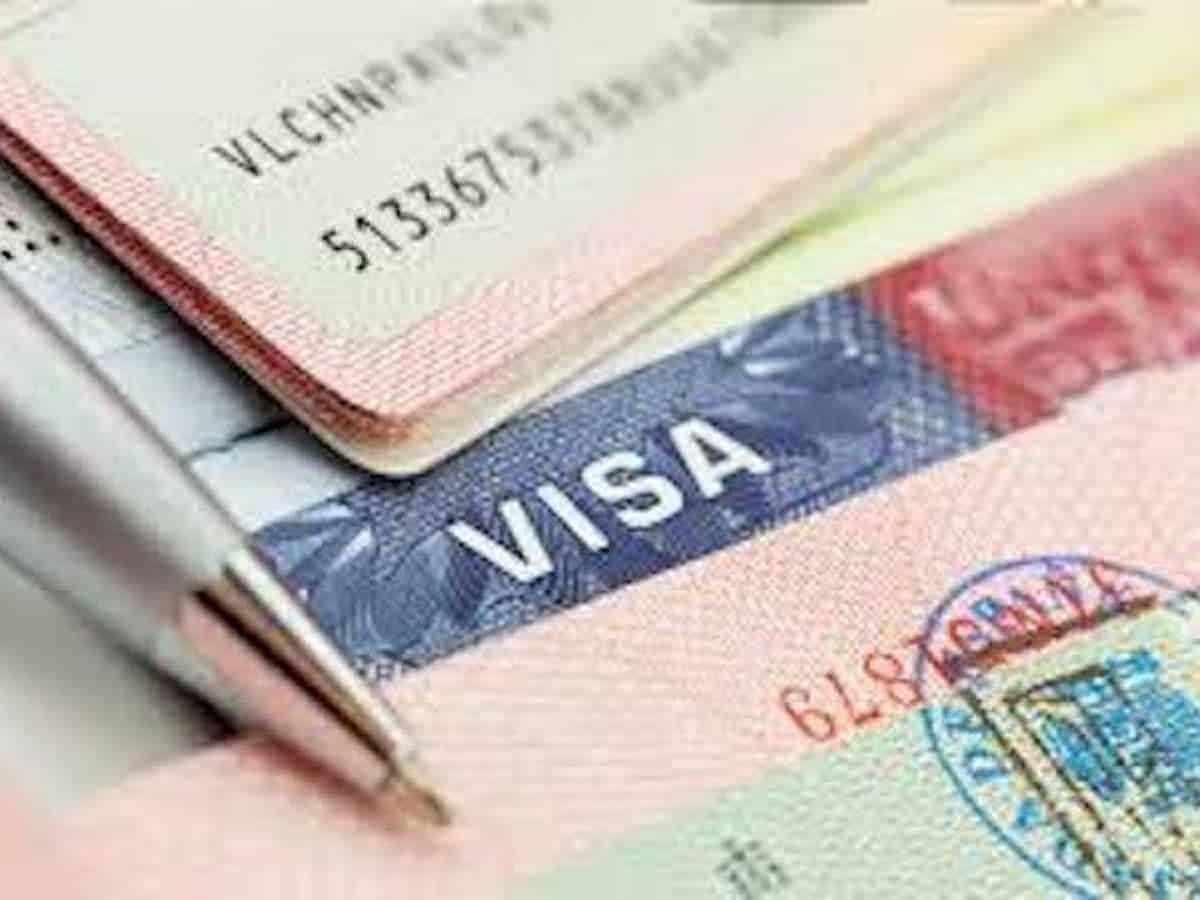
Hyderabad: Beginning January 1, 2025, the US Embassy in India will implement new regulations aimed at streamlining the scheduling and rescheduling of non-immigrant visa appointments.
The new rules aim to alleviate long wait times for applicants, which is a significant concern for many Indians seeking to work or travel to the United States.
The embassy’s announcement comes shortly after the Department of Homeland Security (DHS) introduced new rules to modernize the H-1B visa process, which is crucial for filling job vacancies in key sectors.
New rules for visa appointment
Under the new visa appointment rules, applicants will be allowed to reschedule their appointments once without incurring additional fees.
However, if an applicant misses their rescheduled appointment or needs to reschedule again, they will have to book a new appointment and pay the application fee again.
The embassy emphasized the importance of attending scheduled appointments to maintain an efficient process and reduce overall wait times.
Despite these improvements, current wait times for B1/B2 visitor visas remain substantial.
Visa interview wait time in Hyderabad, other Indian cities
Despite these improvements, current wait times for B1/B2 visitor visas remain substantial:
- Mumbai: 438 days
- Chennai: 479 days
- Delhi: 441 days
- Kolkata: 436 days
- Hyderabad: 429 days
For student visas, wait times are also lengthy:
- Mumbai: 193 days
- Chennai: 106 days
- Delhi: 150 days
- Kolkata: 143 days
- Hyderabad: 115 days
Biden admin eases H1B visa rules
The outgoing Biden administration has relaxed rules for H-1B visas that will make it easier for American companies to hire foreign workers with special skills and facilitate a smoother transition from F-1 student visas to H-1B visas, a move that is likely to benefit thousands of Indian tech professionals.
The most sought-after H-1B visa is a non-immigrant visa that allows US companies to employ foreign workers in speciality occupations that require theoretical or technical expertise.
Technology companies depend on it to hire tens of thousands of employees each year from countries like India and China.
New H1B rule aims to provide greater flexibility
The rule, announced by the Department of Homeland Security (DHS) on Tuesday, aims to provide greater flexibility to employers and workers by modernising the definition and criteria for special positions and nonprofit and governmental research organisations that are exempt from the annual statutory limit on H-1B visas.
The changes will help US employers hire as per their business needs and remain competitive in the global marketplace, an official release said.
President-elect Donald Trump will take charge as the next president of the US after his swearing-in ceremony on January 20.
Rule extends to students on F-1 visas
According to the DHS, the rule also extends certain flexibilities for students on F-1 visas seeking to change their status to H-1B to avoid disruptions in lawful status and employment authorisation for students holding F-1 visas.
It also will allow US Citizenship and Immigration Services (USCIS) to process applications more quickly for most individuals who had previously been approved for an H1-B visa.
It will also allow H1-B visa holders with a controlling interest in the petitioning organisation to be eligible for H-1B status subject to reasonable conditions. The latest move by the outgoing Biden administration builds on its previous efforts to ensure that the labour needs of American businesses are met to reduce undue burden on employers while adhering to all US worker protections under the law.
DHS legally limited to awarding 65000 H1Bs per year
The DHS through USCIS is legally limited to awarding 65,000 H-1Bs per year, with an additional 20,000 for applicants with advanced degrees, but many nonprofits are exempt from that cap.
H-1B petitions subject to the cap regularly exceed the number of legally available visas, which are issued annually at the start of the fiscal year. Applicants are chosen by a lottery system for review, meaning eligible applicants are often denied due to chance.
Cap-exempt organisations can petition for H-1Bs year-round, and they are not subject to a statutory limit, the Hill reported.
Under the new rule, nonprofit and governmental research organisations will be defined as those whose “fundamental activity” is research, rather than the previous “primarily engaged” or “primary mission” definitions, which led to confusion regarding which organisations were exempt from the cap and which were not, the report added.
The H-1B programme has previously come under criticism for being susceptible to abuse in large part by organisations that flood the application system, lowering the chances of applicants subject to the cap lottery.
(With excerpts from PTI)



